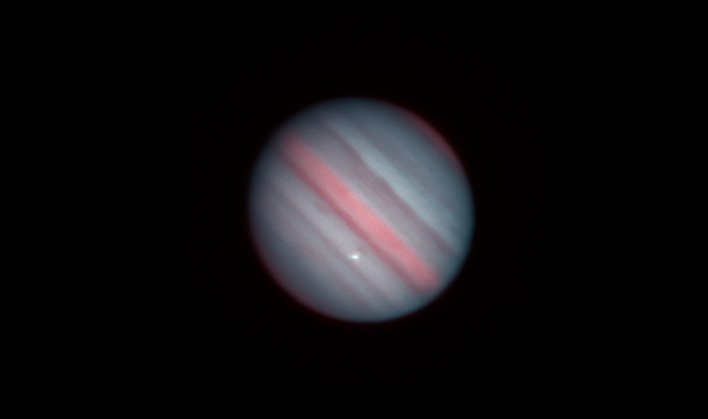Fireballs Are Slamming Into Jupiter, Should We Be Worried On Earth?
Asteroids have been in our news headlines as of late as NASA prepares its planetary defense Double Asteroid Redirection Test (DART) for launch later this month. DART is set to send a satellite deep into space where it will collide with the asteroid Didymos. NASA hopes the mission will give it vital information of how ramming a satellite into an asteroid can affect its trajectory. This is in case Earth ever faces a doomsday asteroid itself.
But while NASA prepares to launch DART, astronomers have been looking to the sky in hopes of gathering information on asteroids. One way of doing that is by observing the planet Jupiter. Due to the planet's enormous size and field of gravity, Jupiter lends itself as the solar system's target range for space rocks. While it is rare to actually see an asteroid pummeling into the planet, the information it gives can tell astronomers and scientists more about the solar system as a whole.

In an email to Space.com, Arimatsu said, "When I found the impact flash event through my detection program, I was astounded. The quick finding indicates that I was lucky, or the impact rate is much larger than previously expected."
NASA's Juno mission has been orbiting Jupiter since 2016. After the most recent event, it was able to view the very spot of impact just 28 hours after it happened. It was able to capture a picture of the patch of atmosphere from a little over 1,200 miles above the clouds. This indicated to scientists that the asteroid in question was small enough that it did not have any real effect on the Jupiter's atmosphere.
The most recent asteroid impacts into Jupiter pale in comparison to the most well known impact caused by 19 fragments of a comet called Shoemaker-Levy 9 in 1994. That instance left a visible mark on the large planet leaving a dark splotch larger than the Earth in the planet's clouds that lasted for months. The darkness eventually faded away as it mixed into the outer layers of clouds.
Asteroids have been slamming into Jupiter for hundreds of millions of years. So, while the most recent occurrences are not anything new, they are still important in understanding how asteroids might affect a planet's atmosphere over time.


